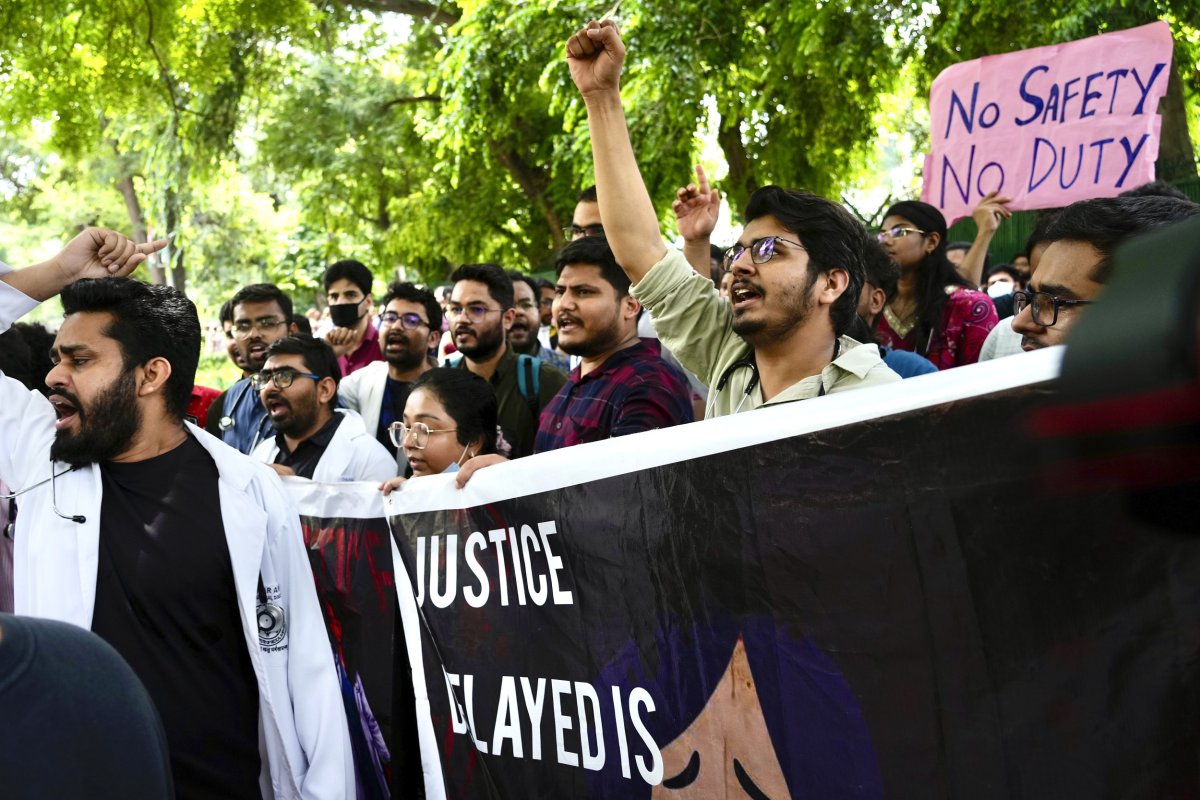India’s top court has set up a national task force for doctors to help with the safety of their staff, according to the Associated Press.
It comes just days after the country witnessed widespread protests following the rape and killing of a trainee doctor.
India’s Supreme Court said the doctors’ panel will set guidelines and make recommendations to ensure the protection of medical professionals and healthcare workers across the country.
Chief Justice Dhananjaya Yeshwant Chandrachud said: “Protecting safety of doctors and women doctors is a matter of national interest and principle of equality. The nation cannot await another rape for it to take some steps.”

Doctors and paramedics protesting against the rape and killing of a trainee doctor at a government hospital in Kolkata gather in front of the Indian health minister’s office, in New Delhi, India, on Monday, August 19, 2024. India’s top court has set up a national task force for doctors to help with the safety of their staff.
Manish Swarup/AP
Doctors across India have been holding protests, candlelight marches and temporarily refused care for non-emergency patients since August 9, when the killing happened in the eastern city of Kolkata, the capital of West Bengal state.
The doctors say the assault highlights the vulnerability of healthcare workers in hospitals and medical campuses across India.
The top court asked the federal agency investigating the killing to submit a report on Thursday on the status of its investigation. A police volunteer has been arrested and charged with the crime, but the family of the victim has alleged it was a gang rape and that more people were involved.
The suspension of work by doctors has affected thousands of patients across India. They are demanding stricter laws to protect them from violence, including making any attack on on-duty medics an offense without the possibility of bail.
The death of the 31-year-old trainee doctor at the R.G. Kar Medical College and Hospital has also highlighted the problem of violence against women in India. Thousands of women have marched in the streets of Kolkata and other Indian cities demanding justice for the doctor.
They say women in the country continue to face rising violence despite tough laws that were introduced following the gang rape and murder of a 23-year-old student on a moving bus in Delhi in 2012.
It led to large protests and changes to the country’s rape laws.
Lawmakers ordered harsher penalties for such crimes and set up fast-track courts dedicated to rape cases. The government also introduced the death penalty for repeat offenders.
But despite tougher legislation, sexual violence against women has remained a widespread problem across India.
In 2022 alone, police recorded 31,516 reports of rape—a 20 percent jump from 2021, according to the country’s National Crime Records Bureau.
Many of the victims are India’s 80 million Dalit women, who are classified as belonging to a low caste and are often subjected to violence and discrimination.










